Mayor Vic Paul Salarda: Continuing a Legacy of Service
Stories
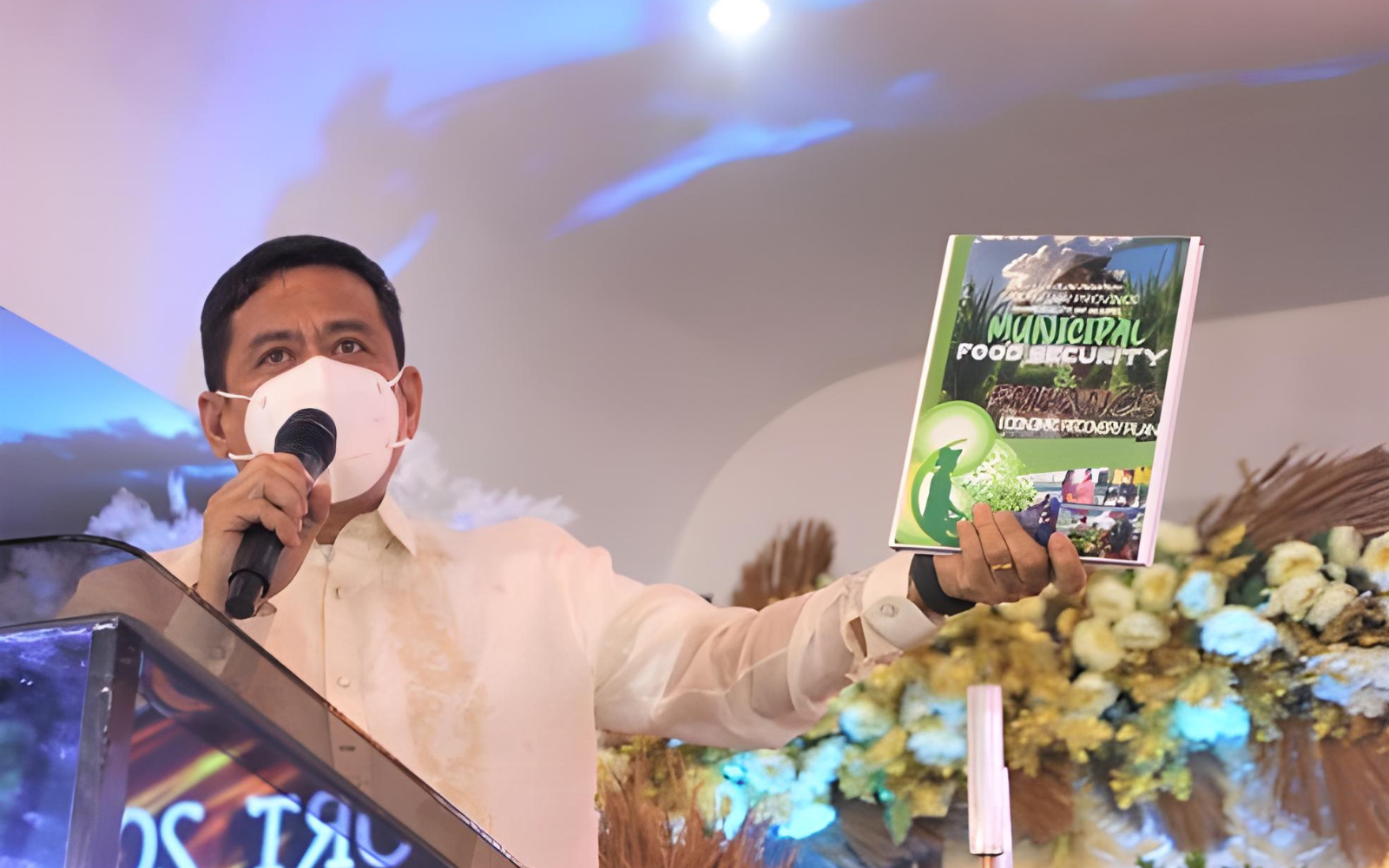
Mayor Vic Paul Salarda, born and raised in Alabel, Sarangani, has committed to improving the lives of his fellow residents. A former public school teacher for nine years, he was inspired by his parents, who were also dedicated teachers. He took office as mayor in 2016, after serving as a municipal councilor and vice mayor.
His mission is to tackle food insecurity and healthcare issues in Alabel, a town with vast agricultural land but recurring problems with food security and malnutrition. Shortly after becoming mayor, he joined the Zuellig Family Foundation’s (ZFF) Municipal Nutrition Governance Program to help address these challenges. His drive to serve intensified after his mother’s passing, leading him to take on the family’s political legacy with a focus on reform.
Poverty Plagues the Beach Town
When Mayor Salarda took office in 2016, nearly half of Alabel’s population was living in poverty, with a rate of 45%. The town’s poverty rate had been rising, reaching 46% in 2012 before slightly dropping to 44.7% in 2015. By 2017, the poverty rate had jumped to 64%, showing the severity of the situation.
Alabel’s terrain, mostly rolling hills and mountains, made farming difficult and attracted insurgents, though the military helped reduce their influence by 2015. Despite having vast agricultural land, Alabel faced food shortages, with local farmers producing only 40% of the needed food by 2022. Factors like a lack of farm machinery, no financing options, and selling land for industrial use worsened the problem.
Alabel’s population grew rapidly from 18,186 in 1975 to 88,294 in 2020, straining the town’s resources and services. A survey in February 2022 found that only 1% of families in Alabel were food secure.
Pressing Need to Amplify Interventions
In 2018, Alabel struggled in achieving its healthcare goals, particularly in maternal and child health. Key indicators like maternal mortality, antenatal and postnatal care, and skilled birth attendance were below target. Coverage for these services barely reached 60%, highlighting the need for better healthcare infrastructure and services.
The town also faced high malnutrition rates. Since 2017, over 22% of children were stunted, and 10.47% were underweight. Despite some improvements from 2017 to 2019, more comprehensive interventions are needed.
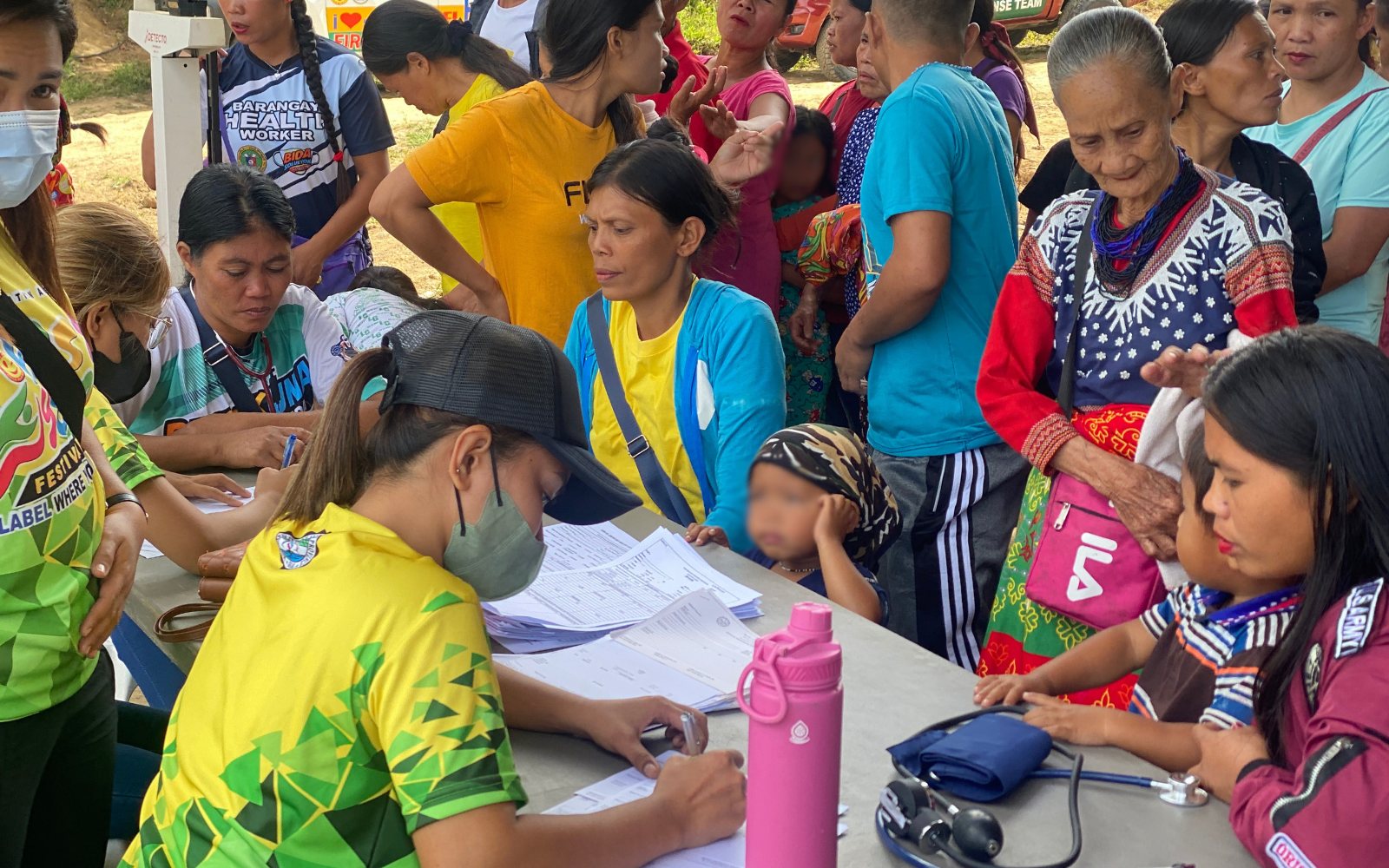
“What about the forthcoming years, the increasing population, and the conversions of agricultural lands? How would it affect our food supply?” Mayor Salarda asked. “How are we going to fill in the gaps? Should or can we always rely on food outsourcing? What will happen if LGU doesn’t act now? And what direction shall we take?” Early in his term, Alabel worked with ZFF, UNFPA, and the Department of Health to improve maternal care and ensure no mother dies during childbirth.
Deep Dive
Mayor Salarda and his team visited a family in Sitio Glamang, Barangay Datal Anggas, Alabel, where they found 4-year-old Joana severely malnourished and underweight. The area is remote, requiring a difficult two-hour journey with high transportation costs. Joana’s family, affected by a recent flood, had limited food and lived in cramped conditions. They ate mainly papaya and sweet potato tops, with rice being rare.
The core team members felt pity and frustration, realizing the difficulties posed by language, customary beliefs, and traditions in delivering services to the people. Rona Padilla of the Municipal Social Welfare and Development Office expressed disbelief that some children, particularly in geographically isolated and disadvantaged areas (GIDAs), are deprived of their right to education despite their efforts to promote early childhood care and development.
This encounter served as a reminder to Mayor Salarda and his core team of the need for a comprehensive plan of action to address poverty, hunger, and malnutrition in Alabel. They recognized the importance of collaboration with ZFF to achieve their goals and uplift the well-being of the community.
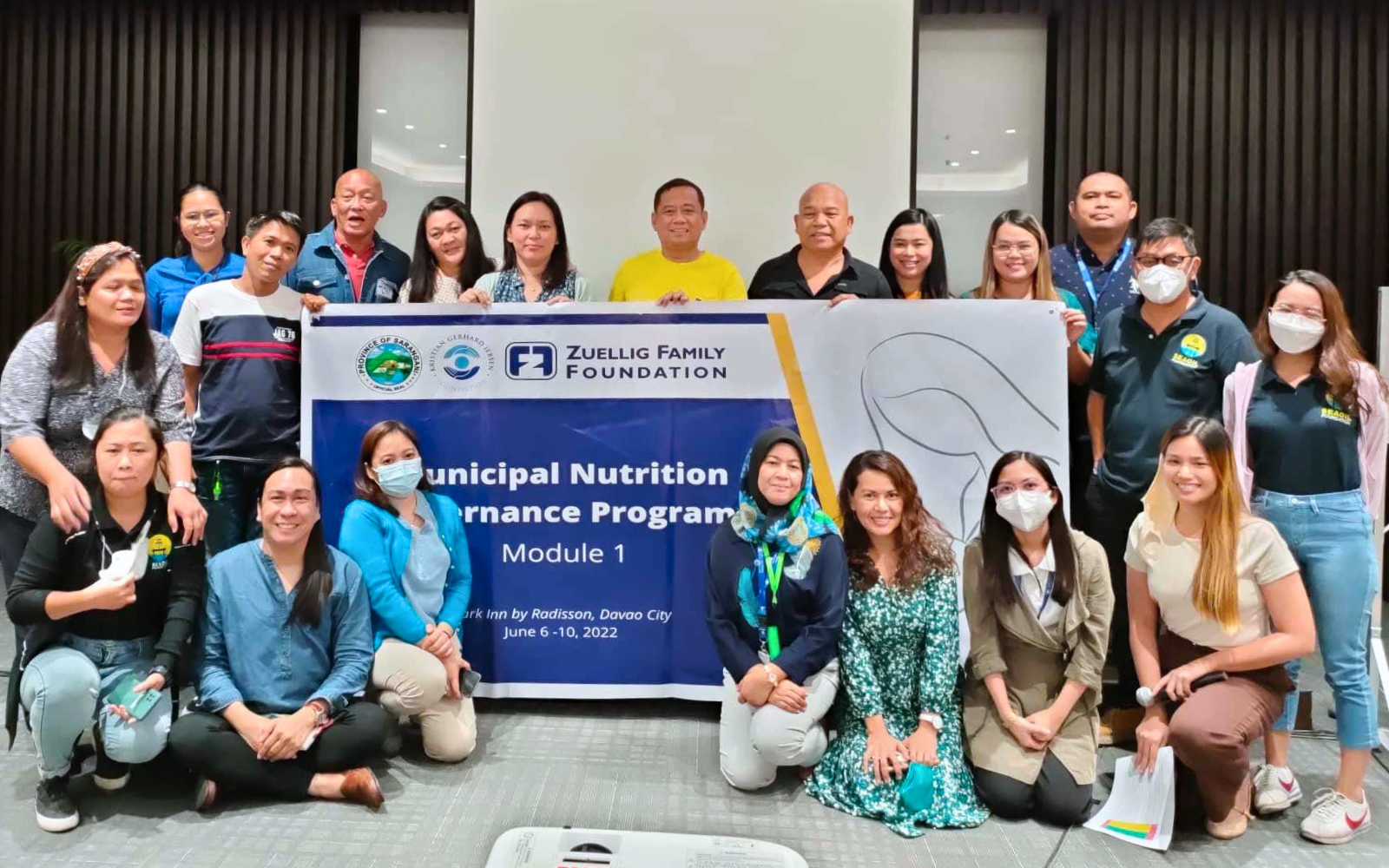
Taking action
Alabel has received support from the Sarangani Provincial Health Office. Together they have strategized and allocated additional resources to enhance the local healthcare system and address the persistent challenge of malnutrition. This partnership aims to implement sustainable measures that will improve nutrition outcomes and ensure the overall well-being of the community. By focusing on comprehensive nutrition programs and interventions, Alabel is actively working toward alleviating the high incidence of malnutrition and promoting a healthier future for its residents.
In 2021, Mayor Vic Paul Salarda launched the Municipal Food Security and Economic Recovery study and developed a 10-year food security plan. This plan aims to ensure that everyone in Alabel has access to safe, nutritious, and affordable food. To support this, Mayor Salarda set up a Food Security Council with committees focusing on production, technical skills, marketing, and linkages. The Council works to boost food production, build skills, and improve market connections.
Since 2022, Alabel has been implementing the plan, investing in farm machinery, supporting farmers with training and equipment, and improving food quality and access. They have partnered with organizations like Seaoil Foundation and Mahintana Foundation to provide nutritious food to schools and daycares.
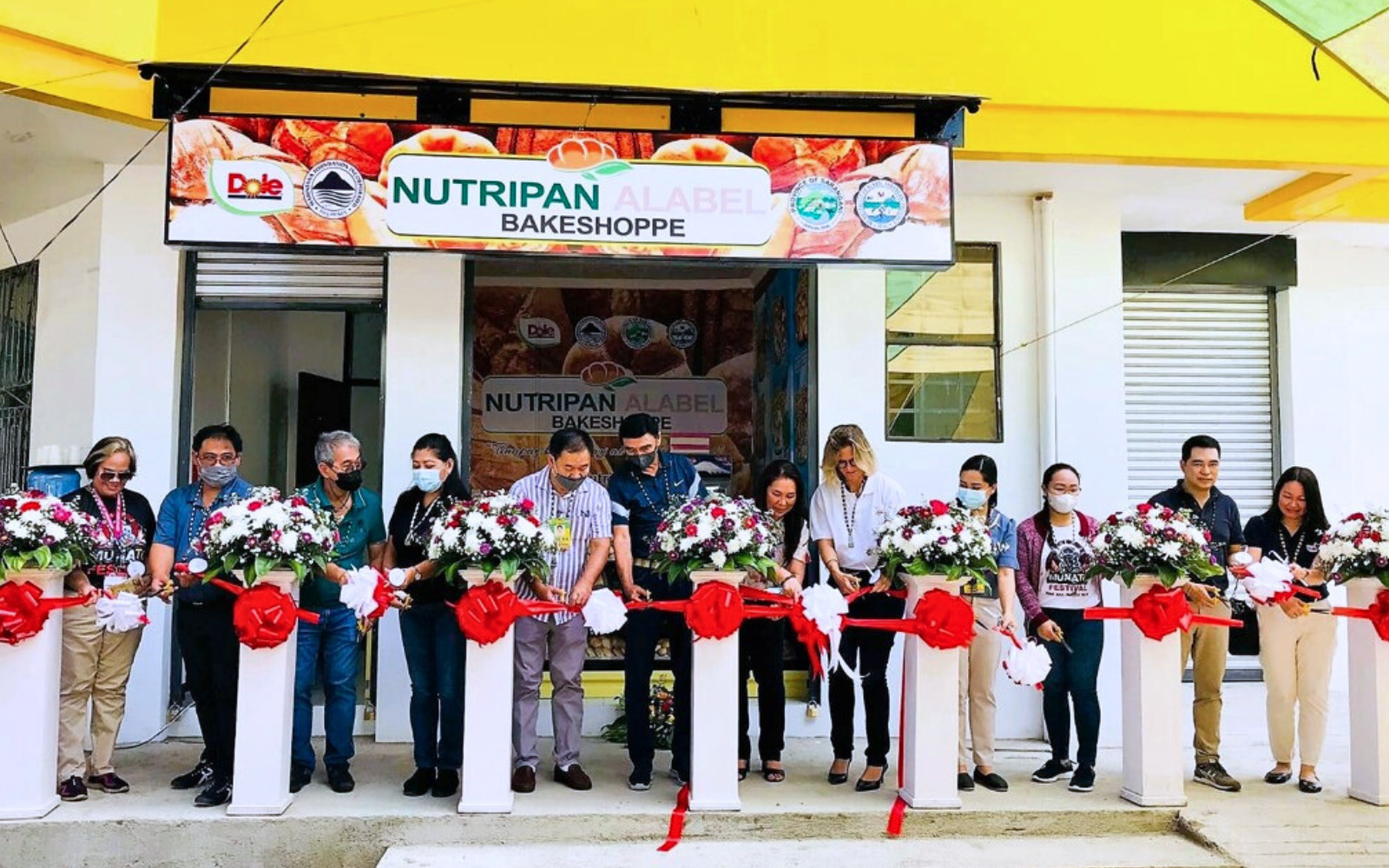
Efforts also include targeting the poorest with scholarships, livelihood support, and financial assistance for farmers. The goal is to reduce food insecurity and poverty in Alabel through comprehensive and collaborative approaches.
Ensuring food security through the mobilization of barangay leaders
Mayor Salarda, with support from ZFF and Seaoil Foundation, met with all 13 barangay captains to discuss improving nutrition and food security. The captains agreed to support and guide local workers and adopt food security policies in their areas.
Salarda’s program, ‘Serbisyong Smile sa Barangay’, aims to help poor households, especially in remote areas, by providing health, social, and agricultural services. During the pandemic, the Jollibee Foundation’s community kitchen prepared hot meals for malnourished children using surplus produce bought by the LGU.
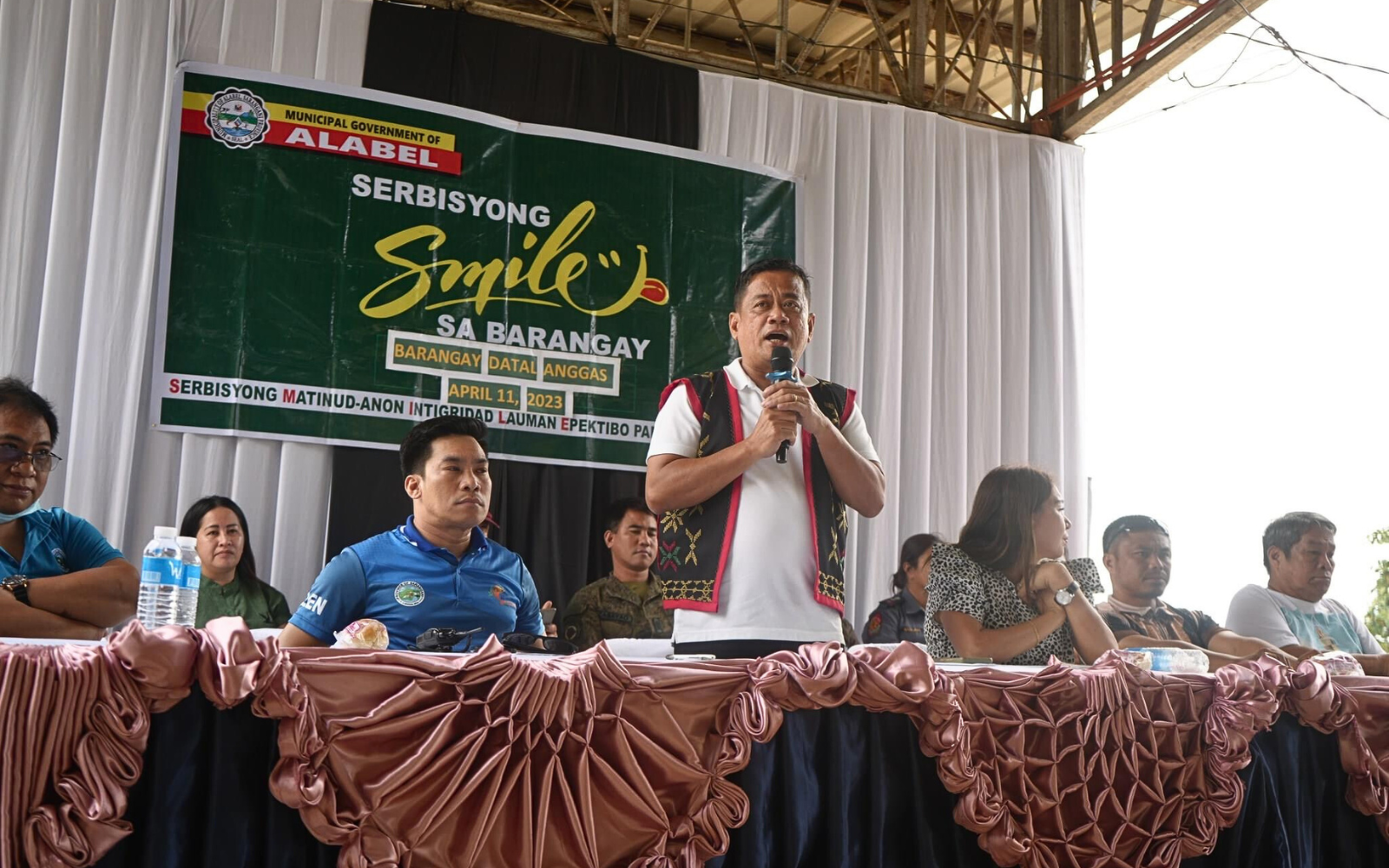
The new municipal food hub in Barangay Alegria helps local farmers sell their produce and provides a 100-peso fuel subsidy for deliveries. Efforts have reduced child stunting to 7.53% in 2022, benefiting 717 children.
Mayor Salarda plans to expand these initiatives and seeks more partners to improve infrastructure and support for farmers. Despite financial challenges in fueling their 10-year plan on food security and poverty alleviation, Alabel remains committed to making positive changes and further improving the well-being of its community members.